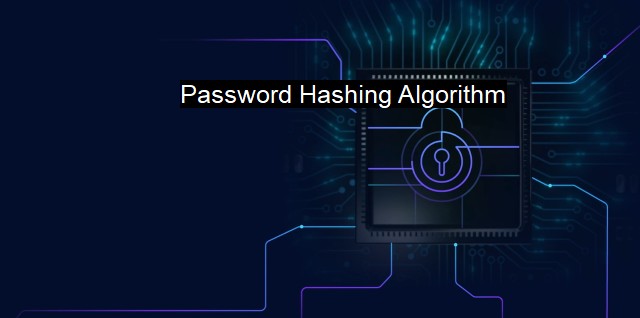What is Password Hashing Algorithm?
The Importance of Password Hashing Algorithms in Contemporary Cybersecurity and Antivirus: A Comprehensive Overview
In the sphere of Cybersecurity and antivirus, a significant tactic practiced for securing password data is known as "Password Hashing Algorithm." It's a proficient manner and innovative methodology used to safeguard password data, lessening the vulnerabilities to unauthorized accessibility and enacting an important barrier against cyber-attacks.To comprehend what Password Hashing Algorithm is, it's imperative first to understand the process applied in traditional password saving methods. When a user registers their credentials on a website, their password is generally stored on that site’s server. if breached, all such password data becomes easily accessible, further usable for malicious purposes. To instigate superior security around this process, Password Hashing Algorithm is invoked to safeguard credentials.
Password Hashing is a method where an arbitrary string, representing characters, numbers, or symbols, is translated into another set of symbols, undiscoverable and mapping with no other algorithm. It serves as a one-way function, implying the output (or the hash) can't be used to regenerate the initial password. The algo provides a unique hash for each different password, and even minor changes will yield a completely different hash output, hence making it impossible for anyone attempting to reclaim the original password.
In the Password Hashing Algorithm, the password entered by a user isn't saved in the same form. Rather, the password data is hashed and then stored in a non-visible detailed form. When a password is attempted next time, it doesn't contrast it against the stored password, but hashes the attempted password and compares against the stored hash corresponding to that password. If these hash outputs match, the user's login attempt is deemed successful.
Several popular hash algorithms exist in the cybersecurity sector, each offering varying levels of security. Some of these include the Secure Hash Algorithm (SHA family like SHA-256, SHA-3), Message Digest Algorithm (MD5), and Bcrypt. Bcrypt, in particular, is favored in situations necessitating high-security measures because of its built-in protection against brute force attacks. It implements the technique of 'salting', adding unique random bytes (known as salt) to each password before the hashing process to counter any two identical passwords ending up with a similar hash in the database and hence it avoids rainbow table attacks.
Hash algorithms are only as safe as their implementation. One common flaw is lack of salting, which heightens vulnerability to attacks known as Rainbow Tables, wherein a pre-computed table for reversing cryptographic hash functions is used to crack password hashes.
Regardless of these risks, password hashes significantly elevate the difficulty in acquiring actual password data. Even in cases where databases have been breached, hashed password data still needs to be deciphered, presenting another layer of security for the user information.
Another ambiguity could be the hash collisions, where two different inputs can generate the same hash. Even though this sounds serious, in many cases, it’s extremely rare. Especially in correctly utilized algorithms, collision vulnerability is almost infinitesimal.
Therefore, while Password Hashing Algorithms are not entirely impenetrable, their usage provides robust protection against attackers seeking to exploit user login credentials. It's a favored strategy in cybersecurity and antivirus industry, as part of a holistic approach to data protection, reducing the potential damage that a breach in security can cause an insightful application of technology for insulating users' most private data. password hashing is a fundamental aspect of storing and securing password data, thus contributing to a safer digital landscape.

Password Hashing Algorithm FAQs
What is a password hashing algorithm?
A password hashing algorithm is a cryptographic function that is used for securely storing passwords in a form that is not reversible. It is a process of converting a plain-text password into a fixed-length code or hash that cannot be translated back to the original password.Why is password hashing important for cybersecurity?
Password hashing is important for cybersecurity because it helps to protect sensitive user information from unauthorized access. By hashing passwords, even if a database is breached, hackers won't be able to read the actual passwords, thus making it more difficult for them to gain access to user accounts.How do antivirus programs use password hashing?
Antivirus programs don't typically use password hashing directly, but they can scan for and detect malware that attempts to steal or manipulate password hashes. By detecting and removing these threats, antivirus programs can help prevent password leaks and protect user data.Are all password hashing algorithms equally secure?
No, not all password hashing algorithms are equally secure. Some algorithms are more susceptible to attacks like brute-force or dictionary attacks than others. It is important to use a strong and secure hashing algorithm, such as bcrypt or scrypt, to ensure the best possible protection of user passwords.| | A | | | B | | | C | | | D | | | E | | | F | | | G | | | H | | | I | | | J | | | K | | | L | | | M | |
| | N | | | O | | | P | | | Q | | | R | | | S | | | T | | | U | | | V | | | W | | | X | | | Y | | | Z | |
| | 1 | | | 2 | | | 3 | | | 4 | | | 7 | | | 8 | | |||||||